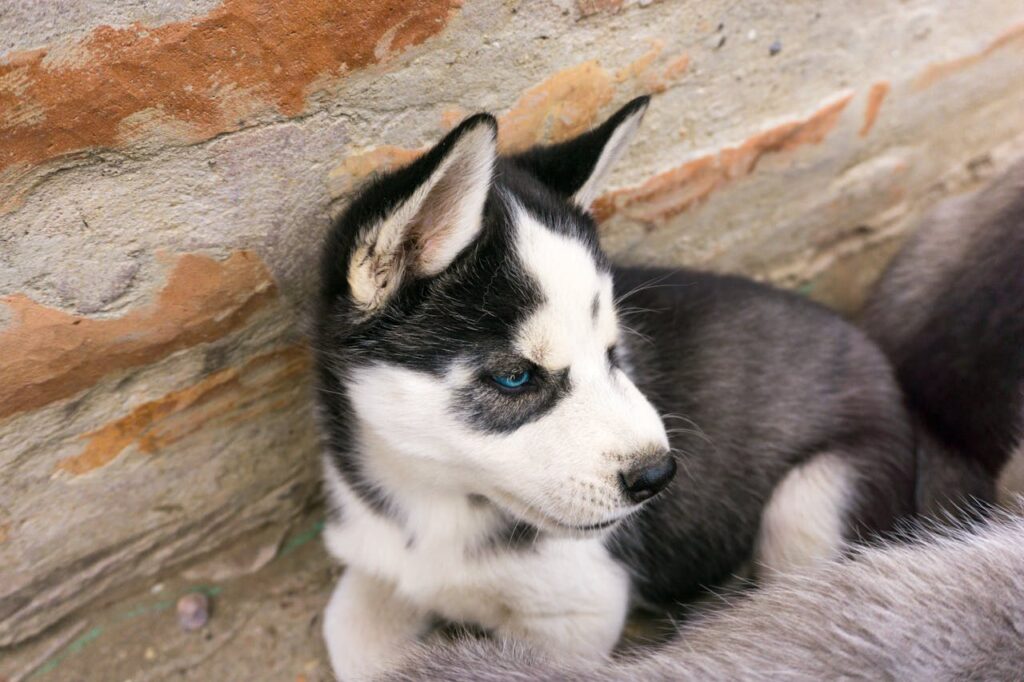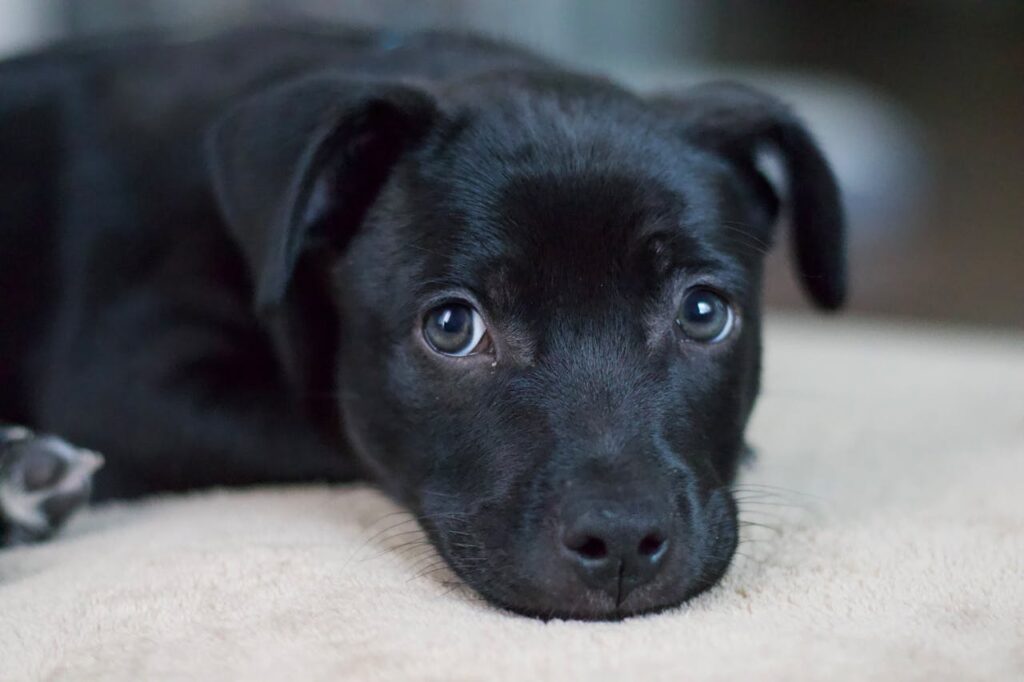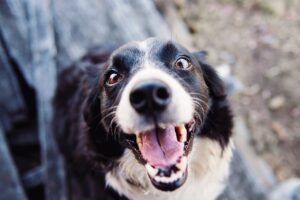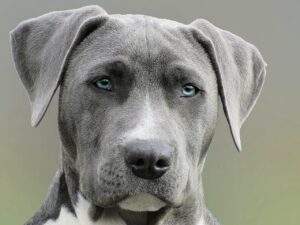Chicken noodle soup is a dish consisting of chicken, noodles, vegetables, and broth. It’s commonly served as a warm, comforting meal. When considering feeding dogs, chicken noodle soup may contain ingredients like onions or garlic, which can be harmful to them.
In this post, we’ll see whether you can feed your dog chicken noodle soup, what are its benefits, harmful effects and most importantly, things to know (facts) about chicken noodle soup. Additionally, we would also take a look at the nutritional value and the proper way to feed dogs, chicken noodle soup. Finally, we will answer the most important questions about this topic and share the final verdict.
But, firstly – let’s see, can dogs eat chicken noodle soup?

Table of Contents
ToggleCan Dogs Eat Chicken Noodle Soup Safely?
It depends. Dogs can eat chicken noodle soup in moderation, without onions or garlic. Serve plain, avoiding high sodium and spices. Chicken provides protein, while vegetables offer vitamins. However, watch for excessive salt or fat. Homemade, low-sodium versions are best.
Benefits of Feeding Your Dog Chicken Noodle Soup (4 Benefits)
Chicken noodle soup is beneficial to dogs. Here is a list of 4 benefits of chicken noodle soup for dogs:
- Provides Protein: Chicken in the soup offers essential protein for muscle growth and repair.
- Hydration: The broth component helps keep dogs hydrated, especially beneficial for sick or elderly dogs.
- Nutrient-Rich: Vegetables in the soup provide vitamins and minerals necessary for overall health.
- Comforting: Warm soup can provide comfort to dogs recovering from illness or surgery.
Harmful Effects of Feeding Your Dog Chicken Noodle Soup (4 Harms)
Chicken noodle soup can be harmful to dogs. Here is a list of 4 potential harmful effects of chicken noodle soup for dogs:
- Sodium Overload: High sodium content in the soup can lead to dehydration and kidney issues.
- Toxic Ingredients: Onions or garlic commonly found in soup recipes are toxic to dogs and can cause gastrointestinal upset or even damage to red blood cells.
- Excessive Fat: Some soups contain high levels of fat, leading to pancreatitis or obesity in dogs.
- Allergic Reactions: Dogs may have allergic reactions to ingredients in the soup, causing itching, skin irritation, or digestive problems.
Things to Know About (Facts) about Chicken Noodle Soup
In this section, we will discuss some facts and things to know about chicken noodle soup.
| Attribute | Description |
|---|---|
| Ingredients | Typically includes chicken, noodles, vegetables (such as carrots, celery), broth, herbs, and spices. |
| Texture | Consists of soft noodles, tender chicken pieces, and cooked vegetables, suspended in a savory broth. |
| Flavor | Offers a savory taste with hints of chicken, vegetables, and herbs, often seasoned with salt and pepper. |
| Nutritional Content | Provides protein from chicken, vitamins and minerals from vegetables, and hydration from the broth. |
| Preparation Method | Cooked by simmering chicken, vegetables, and noodles in broth, seasoned with herbs and spices, until tender. |
| Serving Temperature | Typically served hot or warm, enhancing aroma and comfort, but must be cooled to avoid burning a dog’s mouth. |
| Potential Allergens | May contain ingredients like wheat in noodles, which can trigger allergies in some dogs. |
| Health Considerations | High sodium, fat, or toxic ingredients like onions or garlic can pose health risks to dogs if consumed. |
Nutritional Value of Chicken Noodle Soup
In this section, we will discuss the nutritional value of chicken noodle soup.
| Nutrient | Amount per Serving | Unit |
|---|---|---|
| Calories | 120 | kcal |
| Protein | 8 | grams |
| Fat | 3 | grams |
| Carbohydrates | 15 | grams |
| Fiber | 2 | grams |
| Sugars | 3 | grams |
| Sodium | 800 | milligrams |
| Potassium | 300 | milligrams |
| Vitamin A | 500 | IU |
| Vitamin C | 10 | milligrams |
| Calcium | 50 | milligrams |
| Iron | 2 | milligrams |
How to Feed Dogs Chicken Noodle Soup?
Here we will explain in 4 proper steps how to properly feed your dog chicken noodle soup:
- Check Ingredients: Ensure the soup does not contain onions, garlic, or excessive salt, which are harmful to dogs.
- Portion Control: Serve a small amount of plain chicken, noodles, and vegetables without seasoning to avoid digestive upset.
- Cool Down: Allow the soup to cool to room temperature before serving to prevent burning your dog’s mouth.
- Monitor Response: Watch for any adverse reactions such as vomiting, diarrhea, or allergic symptoms after feeding.
Things to Take Care of (Precautions) before feeding your Dog Chicken Noodle Soup:
- Avoid feeding soup with onions, garlic, or high sodium content.
- Serve small portions to prevent digestive issues.
- Ensure the soup is cooled to a safe temperature before serving.
- Monitor your dog for any adverse reactions after consumption.

Can Dogs Eat Alternative Forms of Chicken Noodle Soup?
In this section, we will discuss if dogs can eat alternative forms of chicken noodle soup such as canned chicken noodle soup, low-sodium chicken noodle soup and more.
Can dogs eat Canned Chicken Noodle Soup?
No, dogs should avoid canned chicken noodle soup due to high sodium content and potentially harmful additives.
Can dogs eat Homemade Chicken Noodle Soup?
It depends. Dogs can eat homemade chicken noodle soup without onions or garlic. Serve plain and in moderation.
Can dogs eat Low-Sodium Chicken Noodle Soup?
Yes, dogs can eat low-sodium chicken noodle soup in moderation. Monitor sodium intake and avoid toxic ingredients.
Can dogs eat Vegetarian Chicken Noodle Soup?
Yes, dogs can eat vegetarian chicken noodle soup with dog-safe ingredients. Ensure it’s low in sodium and does not contain harmful additives.
What Other Meat-Based Dishes can a Dog Eat?
Here is a list of other meat-based dishes that dogs can eat:
- Plain cooked beef
- Plain cooked turkey
- Plain cooked pork
- Plain cooked lamb
- Plain cooked fish (such as salmon or tilapia)
Frequently Asked Questions (FAQs)
In this section, we will discuss some frequently asked questions regarding chicken noodle soup and feeding them to dogs.
What is a safe diet for dogs?
A safe diet for dogs consists of balanced, canine-specific food containing protein, carbohydrates, fats, vitamins, and minerals. While chicken and rice, similar in nutritional content to chicken noodle soup, are often recommended for upset stomachs, commercial dog food and a veterinarian-designed diet ensure all nutritional needs are met. Antonyms to “safe” in this context include harmful or toxic foods, such as chocolate or onions.
Can dogs consume broths?
Yes, dogs can consume broths, provided they are plain and free from onions, garlic, and excessive salt, which are toxic or harmful. Broth, particularly chicken or beef, can hydrate and provide nutrients, unlike its counterpart, chicken noodle soup, which may contain ingredients unsuitable for canine consumption.
How does chicken noodle soup compare to plain boiled chicken for dogs?
Plain boiled chicken is safer and more suitable for dogs compared to chicken noodle soup. The former is a simple, digestible protein source without additives, while the latter can contain ingredients like onions, garlic, and salt, which are harmful to dogs. Boiled chicken lacks harmful additives, making it a preferred choice for canine consumption.
What foods should dogs avoid?
Dogs should avoid
- Chocolate
- Grapes
- Raisins
- Onions
- Garlic
- Xylitol (a sweetener)
- Bones that can splinter, such as chicken or fish bones
Conclusion
In summary, dogs can eat chicken noodle soup in moderation, benefiting from its protein and nutrient content. However, it’s crucial to avoid harmful ingredients like onions and garlic. Ultimately, providing homemade, dog-safe variations ensures their health and enjoyment, aligning with responsible pet care practices outlined in the article.



